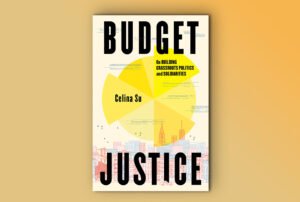
July 25, 2018; Bismarck Tribune
US District Judge Billy Roy Wilson has dismissed a lawsuit brought by Energy Transfer Partners against BankTrack, a Dutch nonprofit that had the gall to write to banks to ask that they cease providing financing for the Dakota Access Pipeline. That’s what BankTrack does—pressure banks to stop financing projects that do not lead to a just and sustainable world. ETP also sued Greenpeace and others last August, alleging they all were conspirators in an international criminal enterprise aimed at halting pipeline construction.
According to Amy Dalrymple at the Bismarck Tribune, “Energy Transfer Partners alleged that the defendants incited, funded and facilitated crimes and acts of terrorism to fraudulently induce donations, interfere with pipeline construction and damage the pipeline developer’s business and financial relationships.
Sign up for our free newsletters
Subscribe to NPQ's newsletters to have our top stories delivered directly to your inbox.
By signing up, you agree to our privacy policy and terms of use, and to receive messages from NPQ and our partners.
Perhaps not surprisingly, the judge deemed that the plaintiff’s attempt to apply federal racketeering laws to BankTrack was “dangerously broad.” He wrote, “While the complaint vaguely attempts to connect BankTrack to acts of ‘radical eco-terrorism,’ an international drug distribution and money laundering enterprise, and violations of the Patriot Act, BankTrack’s actual conduct in this case was allegedly writing a few letters to financial institutions and posting links to the letters on its website.”
BankTrack, who rightly called the legal action a Strategic Lawsuit Against Public Participation (SLAPP) suit, said the tactic was aimed at stifling free speech. “We hope the judge will now similarly dismiss the case against the other defendants,” said Johan Frijns, director of the group, “and that the ringing rejection of this case will discourage other corporations from launching these kinds of Strategic Lawsuits Against Public Participation.” A SLAPP suit, of course, aims to intimidate and silence critics by creating burdensome legal costs. NPQ has written before about the use of such suits by corporations and the attempts of governments and philanthropy to temper their use.—Ruth McCambridge











